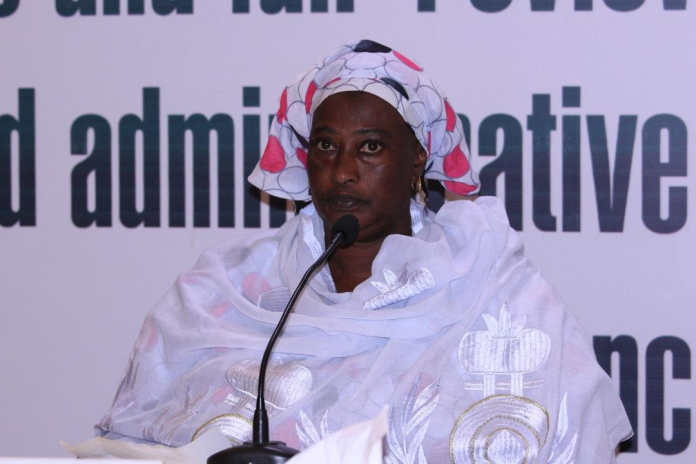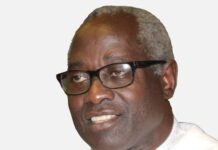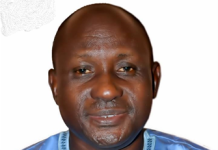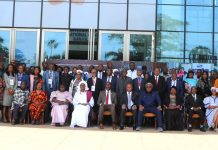By Makutu Manneh
Three former revenue collectors from Kerewan Area Council have testified before the Local Government Commission of Inquiry, which is investigating the council’s financial and administrative practices from May 2018 to January 2025. The commission aims to enhance transparency and accountability in the management of local government funds.
Yassin Faye, a long-serving employee who joined the council in 1989, presented key documents to the commission, including her appointment letter from 1989 and confirmation letter from 1990. In her testimony, Faye explained that in 2018 she was assigned to Farafenni as a revenue collector responsible for licenses and rates. She provided two cash books, one covering the period from 2018 to 2021 and another for 2021.
Faye told the commission that all collections were deposited into the council’s accounts at Trust Bank and GT Bank, but she admitted to using funds for the purchase of electricity, credits and fuel for the council’s tractor on occasion.
The inquiry turned its focus to a 48,000-dalasi cheque issued to Omar Trawally, another revenue collector. Trawally claimed that Faye had called him to collect the cheque at the time when the former CEO, Seedy Touray, visited the sub-treasury. However, Faye said she could not recall making such a request.
Faye was also questioned about an audit query regarding a missing 28,695 dalasis for 2018 and 2019. She explained that she had traced the missing funds to receipts from 2017, but when asked for her cash book to verify the records, she admitted she could not locate it. Instead, she submitted documents obtained from the CRBR, which contained receipt records. Faye further explained that she regularly received instructions from the council’s finance director to allocate funds for various expenses, including vehicle purchases and fuel.
Omar Trawally, who joined the council in 2015 and was officially employed in 2017, was the next witness. He explained that he had initially worked as a Red Cross volunteer before being reassigned as a revenue collector. Trawally testified about his role in collecting rates and taxes in Central Badibou, later transferred to Sabach Sanjal in 2019.
Trawally provided a cash book covering 2021 to the current period and explained that records from 2018 to 2020 were missing because they had been handed over to the council for an audit exercise by the National Audit Office. He also clarified that the red markings on his cash book indicated audit notations made by the council’s finance director, as there had been no internal auditor at the time. He maintained that the finance director was the one doing the audit of his cash book because there was no internal auditor.
The inquiry also questioned Trawally about a 48,000-dalasi withdrawal from the council’s bank account on January 21, 2021. Trawally recalled being asked to collect the cheque, which he cashed at GT Bank, and handed over the funds to his colleague Lamin Dampha to deposit into the council’s Trust Bank account. However, Trawally admitted he could not confirm if the deposit had been made, as he had followed instructions from senior council officials.
The final witness, Isatou Sonko, a former market mistress at Barra Market, gave evidence regarding her responsibilities in managing the market’s financial operations. She explained that she was in charge of distributing ticket books to collectors, receiving daily cash returns, and maintaining financial records.
Sonko provided her appointment letter from 1989, a confirmation letter from 1990, and a written statement dated February 3, 2025, as evidence. She testified that in 2018 she was assigned as the market mistress, overseeing ticket collections and reconciling funds. However, she acknowledged discrepancies in her cash book records, explaining that her 2018 and 2019 books had been handed over to CEO Touray, while she retained records from 2020 to 2022.
When asked about the missing books, Sonko explained that she had not been able to retrieve the 2018, 2019, and 2023 cash books and promised to report back to the commission once they were located. She further clarified that only she maintained the cash book for the market, while the collectors did not keep their records.
Sonko admitted that, under instructions from the council’s finance director and CEO Touray, she occasionally withheld funds from bank deposits, particularly for fuel purchases. She submitted receipts to verify these expenses.
The inquiry also reviewed an audit report showing a discrepancy of 318,734 dalasis for 2018 and 2019. Sonko admitted that she was unaware of the exact figure but acknowledged issues with missing tickets. She recalled an instance where she repaid 15,000 dalasis for the missing tickets using proceeds from her onion farm but claimed that the finance director refused to accept the money and instructed her to pay CEO Touray instead. Sonko stated that several people, including a witness named Lamin Jammeh, were present when she handed over the payment. When questioned about the lack of a receipt for the payment, Sonko admitted that she had not requested one at the time. “I was not thinking about a receipt because I was angry,” she said.
The Local Government Commission of Inquiry continues its investigation into the financial practices of Kerewan Area Council, with authorities looking closely at possible mismanagement and violations of proper financial protocols.





















